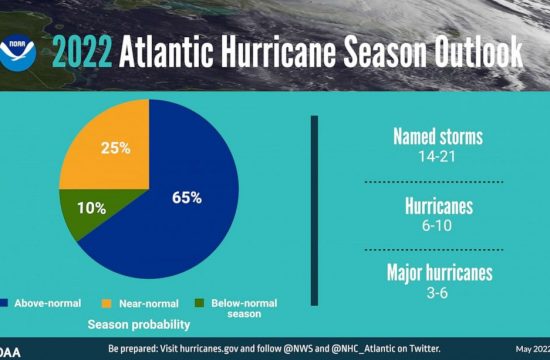Sen. Kamala Harris‘ path on the 2020 campaign trail has been peppered with discrimination and racial microaggressions, as she is the country’s first Black and Indian Democratic vice presidential nominee, and a woman.
From the challenges she faced with having to prove her presidential electability early in the race, to combatting baseless and racist birther theories floated by President Donald Trump and many of her Republican colleagues, the political attacks against Harris have been, at times, uniquely focused on her race, gender and ethnicity.
On Friday, Oct. 16, Sen. David Perdue mocked Harris’ name during Trump’s campaign rally in Macon, Georgia. While warming up the stage, Perdue, who has been Harris’ colleague for nearly four years, intentionally mispronounced the California senator’s first name while attacking her and Democratic presidential nominee Joe Biden.
“The most insidious thing that Chuck Schumer and Joe Biden are trying to perpetuate, and Bernie, and Elizabeth and Kamala-or-Kamala-or Kamala-mala-mala I don’t know whatever,” Perdue said to a crowd of predominantly white supporters who responded in roaring cheers and laughter.
Kamala, a Sanskrit name that is fairly common in South Asian culture, translates to “lotus flower” in English. It was chosen by Harris’ mother to honor her Indian roots.
In a firestorm of backlash, many, including Harris’ niece Meena Harris, called Perdue’s remarks, “racist.”
“I come from a long line of strong women who taught me to be proud of my heritage and to demand respect — especially from racist white men like Sen. David Perdue who are threatened by us,” Meena Harris wrote on Twitter.
“I think it’s indicative of maybe a little bit of a shift,” said Leah Wright Riguer, Associate Professor of History at Brandies University. “Whereas in the past we would have dismissed this or other people wouldn’t have spoken up, we see there’s a move, not just to protect Kamala Harris, although that is part of it, but really to people projecting their own experiences onto her. And in turn, it sparks a response that ends up benefiting people who call this kind of behavior out.”
While Perdue’s campaign maintains that the Republican senator simply mispronounced her name, Riguer says she recognizes the remarks as political rhetoric that underscores Harris’ immigrant roots and makes her appear less American.
“As racism has changed texture — meaning that racism has become something that’s institutionalized and less explicit — microaggressions have become one way to keep people in their place by denigrating another individual, another racial group, without violating societal norms that we associate with explicit forms of racism,” Riguer said.
“What we end up seeing in a lot of spaces is using something like naming to ‘other’ an individual and signal that they are not American, that they are alien, that they are foreign. It becomes a way of undermining the citizenship, the rights, and the identity of the person in question, in this case, Kamala Harris, through use of her name,” Riguer continued.
Harris has spoken about her experiences with racism many times, experiences shared my many Americans of color as a recent poll conducted by the Kaiser Family Foundation (KFF) and The Undefeated revealed that 70% of African Americans said that unconscious racial bias is an obstacle in their everyday lives.
The hashtag #MyNameIs trended on Twitter as thousands of people of color, including top Democrats, rallied around Harris, sharing the meaning of their names and the subsequent discrimination they said they experienced for having an identity that didn’t resonate with the more common names in White American culture.
Indian American actor and comedian Kal Penn revealed his real name is actually Kalpen, saying that he changed it to help his career.
Minority applicants who “whitened” their resume by changing their names and removing any sign of their race were twice as likely to receive a call back when applying for a job than applicants who revealed their real names, according to a 2017 study from the Harvard Business School.
Riguer explains that part of why Perdue’s remarks against Kamala resonates and draws such a strong reaction is because there’s a heightened sense of awareness around the election following the recent racial reckoning across the country. The stakes are high in the election for people of color who have noted the uptick racism and want to see change.
“I think 2020 is much more intense than it was in past few years, particularly because of who the president of the United States is and the kind of atmosphere around him… He has been explicit in raising racial tensions around the country. And I think part of what’s happening is a rush for some to acknowledge that this is wrong and that enough is enough,” Riguer added.
“I’ve been on the receiving end of bigotry and racism because of my name — like David Perdue’s mockery of Kamala Harris’ name,” Nekima Williams, chairwoman of the Democratic Party, wrote on Twitter.
“#MyNameIs Ayanna Soyini Pressley,” Rep. Pressley, D-Mass., tweeted. “My mother, may she rest in power, gave me this name which means beautiful flower in Swahili. She told me I’d make history and the world would learn how to say it right.”
“I dread introducing myself to new people because of the ritual of repeating it until they get it right,” tweeted Addisu Demissie, former campaign manager for Cory Booker. “But I appreciate those who do, and especially those who try. Because it’s a sign of respect.”











